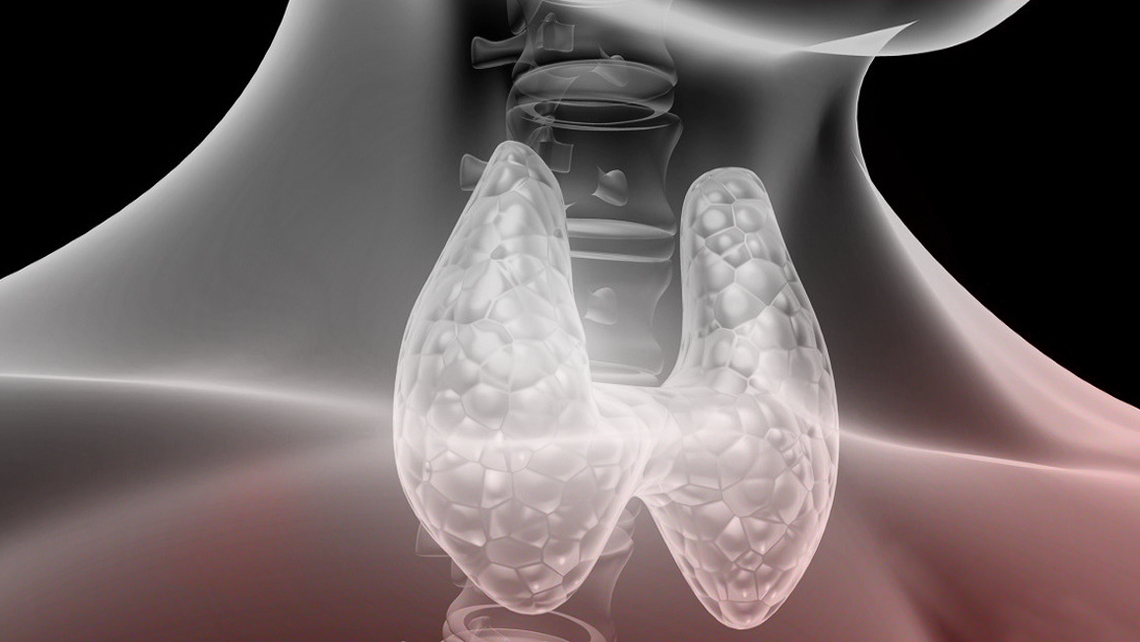
Thyroid function when looking for pregnancy
Índice
What does the Thyroid do?
The thyroid is a gland located in the neck. Its job is to produce thyroid hormone in the right amount. The correct production of thyroid hormone is checked by measuring free T4 levels in blood, which should be in a very narrow range of normal values.
Thyroid hormone is a global metabolic regulator and is necessary for the proper functioning of the whole organism. It influences fertility and the pregnancy success and the baby’s development.
How is the thyroid regulated?
Keeping the thyroid hormone in the normal range is so important for the proper functioning of the body that it is subject to central brain control through a controlling gland called the pituitary gland, which through the hormone TSH monitors and regulates the thyroid’s production of free T4. TSH will increase in situations of low thyroid hormone production in an attempt to stimulate the thyroid to make adequate free T4.
What is the most common cause of insufficient thyroid hormone production?
One of the influencing factors is the daily intake of iodine, in fact, the “4” in free T4 refers to 4 atoms of iodine, in other words, without iodine, even if the thyroid gland is completely normal, it cannot properly produce thyroid hormone.
The most frequent cause of insufficient thyroid hormone production is the presence of antibodies, called TPO antibodies, which “attack” the thyroid, gradually reducing the functioning thyroid tissue.
Does the thyroid affect fertility and pregnancy outcomes?
YES
That is why a thyroid test is performed in all women seeking pregnancy and also in the first pregnancy trimester.
Presence of positive TPO antibodies
Women with positive TPO antibodies more frequently have difficulties in achieving a spontaneous pregnancy or with fertility treatment (in vitro fertilisation – IVF, insemination, egg donation, embryo adoption). In these cases, thyroid function should be evaluated to find if thyroid hormone treatment is necessary to keep TSH levels < 2.5 IU/L, although each case must always be individualised.
These antibodies have also been associated in pregnancy with a greater possibility of miscarriage and other pregnancy complications.
If TPO antibodies are negative, treatment with thyroid hormone is not necessary if TSH is within the normal range for the general population (usually around 4 IU/L).
Thyroid function
During pregnancy, increased production of thyroid hormones is necessary to ensure its development and above all to ensure the proper development of the baby’s brain. The number of neurons and their connections depend on maternal thyroid hormone, especially in the first half of pregnancy.
For this reason, thyroid hormones are measured in all women seeking pregnancy and repeated in the first trimester of pregnancy to check if the mother has been able to manufacture sufficient thyroid hormone in response to the increased needs of pregnancy.
In cases in which the thyroid hormone analysis suggests a risk of a decrease in free T4, usually detected by TSH levels, it is advisable to add exogenous thyroid hormone temporarily until pregnancy is achieved, maintain and adjust it during pregnancy and do not forget to: SUSPEND AFTER DELIVERY, so as not to turn the woman into a chronic thyroid patient, when it is only a temporary aid. It is important to re-evaluate the woman without thyroid hormone treatment about 6 months after childbirth.
Role of iodine
Having sufficient iodine to manufacture thyroid hormone is very important, especially if a period of increased needs such as pregnancy is approaching (a time when the development of the foetal brain is at stake).
This is why an additional iodine intake is recommended, starting with gestational screening and continue throughout pregnancy.
During breastfeeding, the baby has to manufacture its own thyroid hormones and feeds with the mother’s milk. To ensure sufficient iodine is available, breast milk must be “iodised”, so iodine supplementation must be maintained in the mother also during breastfeeding.
In conclusion
It is recommended for all women seeking pregnancy, to assess thyroid function to decide whether thyroid hormone supplementation and iodine supplementation is appropriate.
Dr Pino Navarro, Endocrinology and Nutrition director of Instituto Bernabeu
IT MAY ALSO BE OF INTEREST TO YOU:
